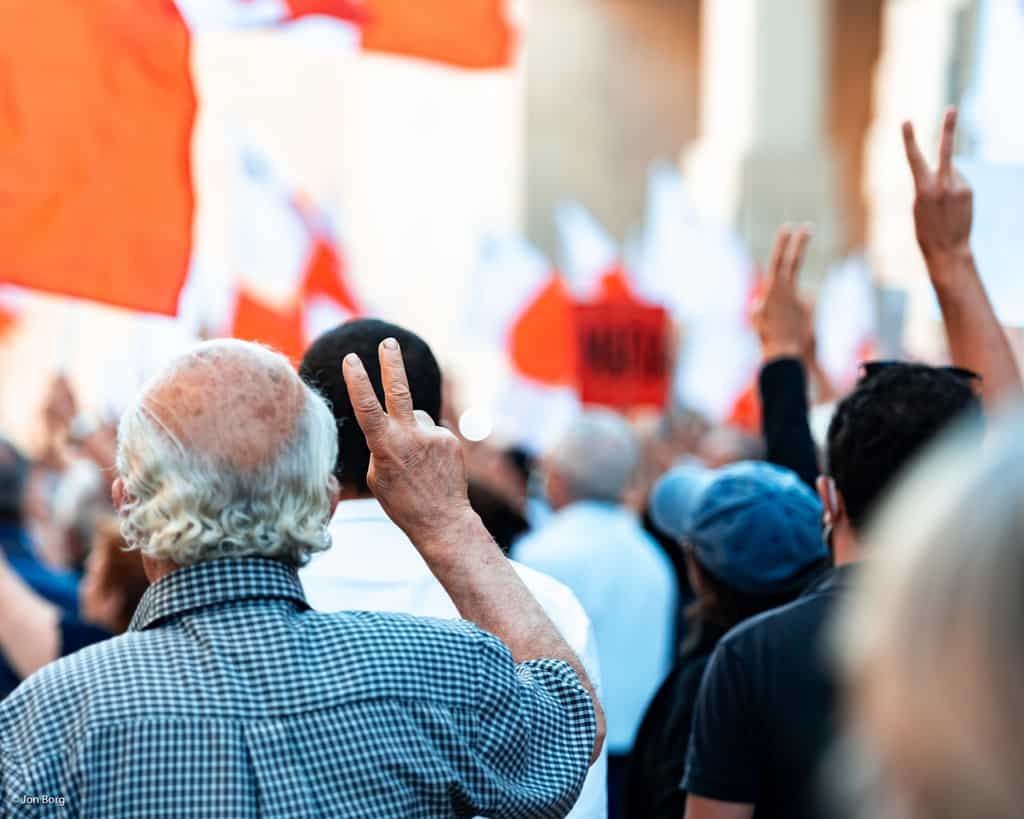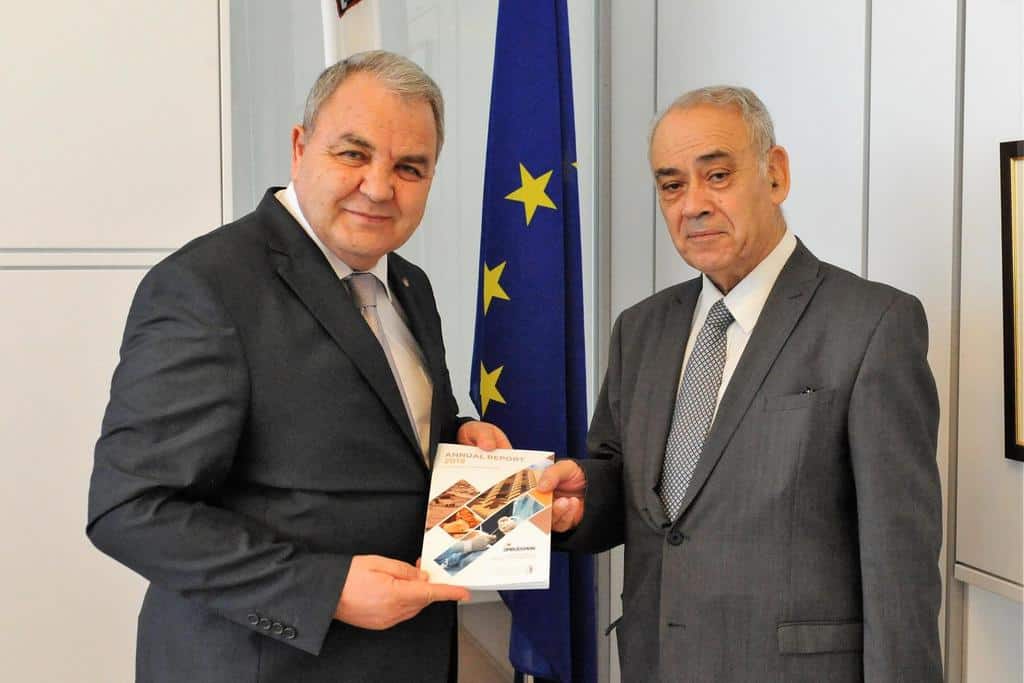
Photo: Jon Borg
I was already in Valletta as protesters gathered outside parliament when I saw headlines reporting on the Ombudsman’s annual report.
“Ombudsman: galvanised civil society brought about downfall of disgraced Muscat,” said the MaltaToday. “An organised civil society brought down an administration – Ombudsman,” wrote the Times of Malta. “Organised civil society one of the factors that brought down an administration – Ombudsman,” headlined The Malta Independent.
He sure did not mince his words. Actually, just in case there’s any ambiguity left, read the opening of the Ombudsman’s annual report for yourself:
2019 was in many respects a year of turmoil that brought about drastic changes in civil society, the public administration and government. Changes that are bound to have a lasting impact on the country’s way of life, on how it is administered, on the empowerment of the citizens and hopefully, on strengthening the checks and balances required to secure the rule of law and curb abuse of power. The indicators are there.
Expert analysis of events have clearly shown what needs to be done. Whether such an essential project is carried out is another matter. It rests completely in our hands.
It was a year when civil society became more organised, vociferous and proactive. Spurred on by dramatic events that through concert, design or pure coincidence exposed the negative corruptive ties between big business and the public administration. Civil society was galvanised into action.
This and other factors, eventually brought about the downfall in disgrace of an administration that enjoyed the backing of a sizeable majority of the electorate through implementing successful, economic policies.
It wasn’t concert or design but pure coincidence that the report was published the day protests resumed yesterday. Inside the parliament building Ombudsman Anthony Mifsud was handing a copy of his report to the perennially oblivious Speaker Anġlu Farrugia. The same Anġlu Farrugia who at the Sette Giugno festivities chided protesters for being “immature” and took pride in blocking access to the parliament building to anyone who is not an MP.

Anġlu Farrugia scorned protesters because they shook the ground on which he stood, not by violence or sedition. But with the sound of their voice and the raising of their arms.
Anthony Mifsud recognised the justification in protesters’ call. He expressed the same frustration we did at the ineffectiveness of institutions and at the reluctance of the government to even properly consult about the changes we need. And he despaired at “the negative corruptive ties between big business and the public administration”.
We understand as well as Ombudsman Anthony Mifsud does that the job is far from over. That all we’ve managed to achieve so far is the resignation of some of the players thrown at us as sops to deflate our will to stick around until the country gets the changes it needs.
We are often reminded by the Labour Party’s side that we ought to trust our institutions to do their job, when past experience shows us there is no reason to give them that trust. And sometimes we are cynically told we’re too few to make real changes so we should throw in the towel and accept our lot.
Of course, we ignore them, and in the face of futility we do not give in to despair, and protest again, demanding the impossible, insisting on real change.
Then we are often reminded by the Nationalist Party’s side that they are the only alternative to the present government. That we either thrown our weight behind the PN or we’re faced with an eternity of the PL. And sometimes we are cynically told the PN doesn’t need to change, doesn’t need to shed its own shadows, doesn’t need to meet our expectations merely because, in purely relative terms, it is not quite as bad as Labour.
Of course, we ignore them, and in the face of a choiceless choice, we protest again, demanding real change, insisting it is not impossible.
This is what distinguishes a civil society campaign from yet another moronic and automatic alternation between two political parties. Not for us the need of compromise, accepting second best, even celebrating its victories in the streets because our colours are better than theirs.
The Ombudsman credited the organisation of civil society. In 2019 he saw it galvanised, mobilised, coherent and driven. It was that. But political parties show us that mobilisation and organisation are merely tools and alone insufficient to drive forward a political program.
It wasn’t the organisation and the mobilisation that brought people out in their thousands to call for justice and for real change. Every individual who joined those protests made a selfless decision to express their fears and their anger, to cry out, without much hope that it would ever make a difference, what they felt and what they wished for: a just country in which they could live without fear of being cheated, deceived, even killed by those they choose to govern them.
The Ombudsman was not alone in seeing that. Joseph Muscat, the man who would tell anyone still wanting to listen that he was undefeated, quivered in fear and scurried out of Castille. He saw the anger of protesters, understood it and feared it.
A country cannot be governed from its streets. We are as impatient as anyone to get to work and earn a living for our families. But for as long as the Ombudsman is the only institution that recognises the desperate need for change, we have no choice but to come out again and again, to mobilise, to organise, to galvanise and to call for truth and justice.
We want to do more than bring down an administration, which the Ombudsman rightly credits us for. We want to build a new Malta in which we can happily live.
Poor Anġlu Farrugia.